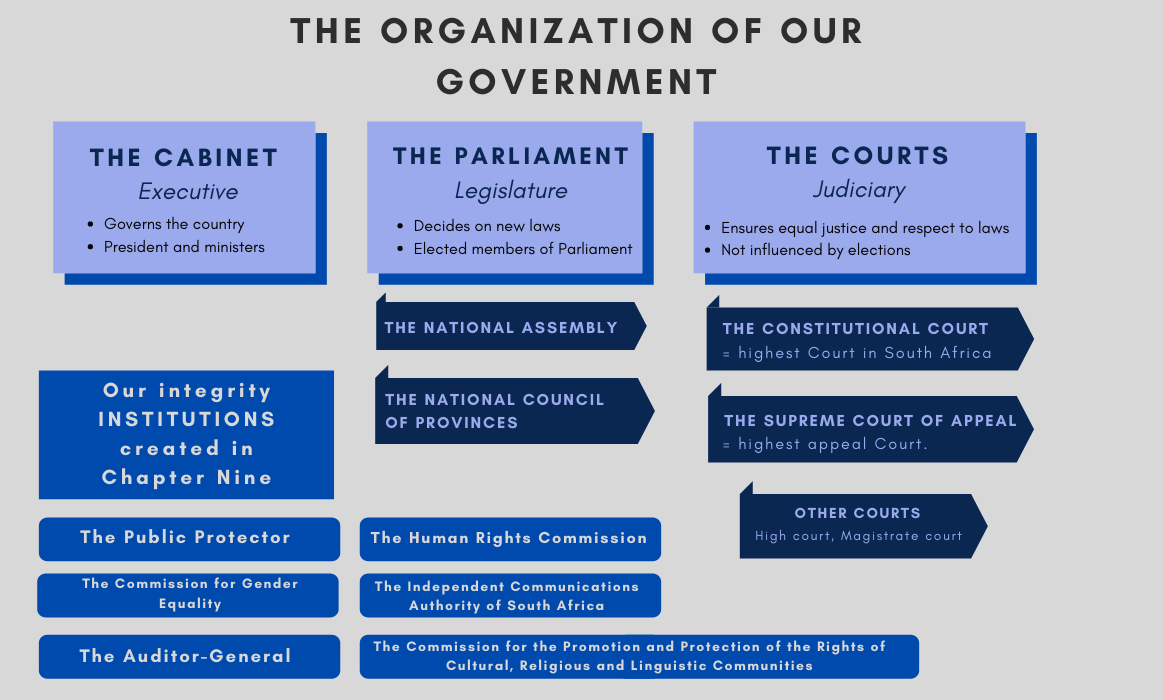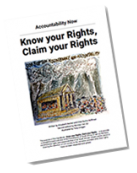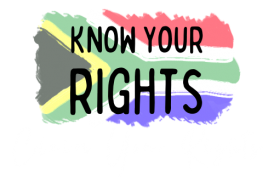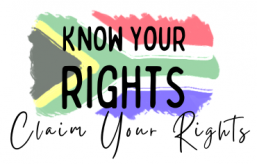Your Rights
Scroll down to get information about our government, the Constitution and your voter's rights.

A Constitution is a set of rules and values for those who govern and those who are governed. All Constitutions exist to help ensure that there is a balance between powers of the state and the rights of the individual person.
Given that the Constitution is the highest form of law in South Africa, all other forms of law made by the institutions of the state have to be in line with it. If any laws fail to meet the provisions of the Constitution, they will be struck down as invalid.
The Constitution has set up six independent institutions to support and protect constitutional democracy. These Commissions are independent from government and able to investigate and recommend changes to government policies.
- The Public Protector
- The South African Human Rights Commission
- The Commission for the Promotion and Protection of Cultural, Religious and Linguistic Communities
- The Commission for Gender Equality
- The Auditor-General
- The Electoral Commission
There is also an Independent Broadcasting Authority to ensure fairness and a diversity of views in broadcasting in South Africa.
One of the most important parts of the Constitution is the Bill of Rights. This is a document which states the most important rights and wrongs, as agreed by most South Africans. It is the foundation stone of our democracy. It is meant to ensure that the injustice, inequality and repression of freedoms that people experienced under apartheid can never be repeated.
Some of the most important rights and needs for promoting accountability and transparency in South African society some 23 years (2017) into our new democracy include:
- Equality
- Human dignity
- Freedom and security of the person
- Freedom of expression
- Freedom of assembly, demonstration, picket and petition
- Housing
- Healthcare, food, water and social security
- Education
- Access to information

The Section 19 of the Bill of Right states:
Every citizen is free to make political choices, which includes the right
– to form a political party or cause.Every citizen has the right to free, fair and regular elections for any legislative body established in terms of the Constitution.Every adult citizen has the right
– to vote in elections for any legislative body established in terms of the Constitution, and to do so in secret;- to stand for public office and, if elected, to hold office.
National and provincial elections are held once every five years. All South African citizens aged 18 and over are eligible to vote.
Every adult citizen has the right to vote in elections for any legislative body established in terms of the Constitution,
and to do so in secret; and to stand for public office; and, if elected, to hold office.
The Independent Electoral Commission (IEC) manages the elections on national, provincial and municipal levels.
Elections are free and fair when:
- There are regular elections.
- There are many different political parties.
- All parties and candidates can carry out their campaigns without fear.
- There is a voters’ roll with every registered voter’s name on it.Voters can take part in elections without fear
- .All citizens can belong to any political party of their choice.
- Anyone can form a party or be a candidate.
- There is respect for other people’s views and there is open public debate.
- Every registered voter, including persons with disabilities, can vote.
- Elections are open and not influenced by any person or group.
- There is no electoral fraud.
- All parties accept the results of the election.
In National and Provincial Elections, you vote for a political party (Proportional Representative or PR electoral system) to get seats in the national or provincial legislatures. In Municipal Elections, you vote for a political party and a ward councillor (a mixed system of PR and a ward constituency system) to get seats at the municipal level.

You get registered in the office that correspond to your district. Click here to check where is your office. You will only need to know your residential address.
You are allowed to choose 1 person to help you at the voting situation if you are physically disabled or have a visual disability.
The only valid documents that you can use to register are :
- Green bar-coded ID book
- Smartcard ID
- Valid Temporary Identity Certificate
- One paper is to choose your preferred political party for the National Assembly.
- The other paper is to choose your preferred party for the Provincial Legislature for the province in which you are registered.
- Make your mark in the blank box next to the party of your choice.
- Be careful not to let your mark touch any of the walls of the box.
- Make only one mark on the ballot paper.
- If you have made a mistake, do not put your ballot paper in the box. Tell the IEC Official. He orshe will then cancel your ballot paper. You will be given a new one.
- Fold each ballot paper in half. So nobody can see your mark.
- An IEC Official will check the stamp on the back of each ballot. You then place your ballot papers in the relevant ballot boxes.


This website has been proudly made by All the Good Things
